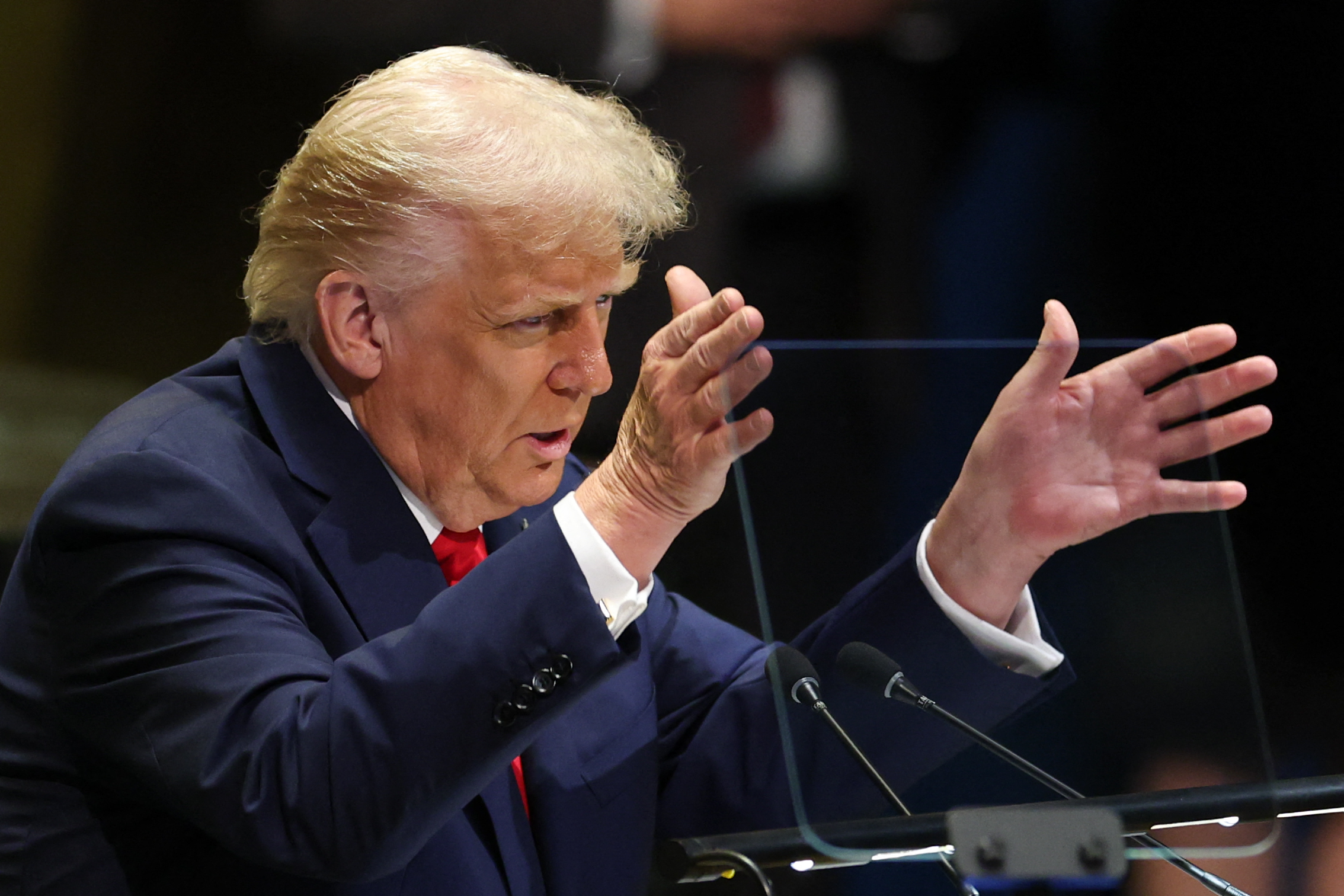Politics
Trump Administration Sets Record-Low Refugee Cap at 7,500

The Trump administration plans to establish a record-low refugee admissions cap of just 7,500 individuals for the fiscal year 2026, marking the lowest figure in U.S. history. This significant reduction follows a previous cap of 125,000 set under former President Joe Biden. The proposed policy prioritizes white South Africans of Afrikaner descent, a decision that has sparked controversy and criticism.
President Donald Trump, who returned to office in January 2025, had previously suspended refugee admissions pending a review of U.S. national interests. In February, he issued an executive order that specifically gave priority to the Afrikaner minority, claiming they face racial persecution and violence in South Africa. This claim has been contested by the South African government, which has labeled the allegations as unfounded.
As of early September, reports indicate that a total of 138 Afrikaners have arrived in the United States, with the first group of 59 individuals landing in May. The New York Times first reported the administration’s plans for the new refugee ceiling, but as of now, neither the White House, the State Department, nor the Department of Homeland Security have publicly commented on this matter.
Refugee advocates have responded sharply to the proposed cap. John Slocum, Executive Director of Refugee Council USA, criticized the limit, stating it would put lives at risk, separate families, and compromise national security and economic growth. Earlier discussions within the Trump administration had suggested a cap of between 40,000 and 60,000, but the latest figure indicates a more pronounced tightening of U.S. refugee policy.
In addition to the new admissions cap, senior officials from the Trump administration recently called for other nations to join a global campaign aimed at rolling back asylum protections. This initiative, presented at a side event during the United Nations General Assembly, could significantly alter the international refugee system established after World War II.
If implemented, this new policy would redefine America’s role in global humanitarian responses and reinforce Trump’s long-standing “America First” approach. Critics argue that this stance threatens decades of U.S. leadership in the protection of displaced populations and could have lasting impacts on global refugee policy.
As the situation develops, many will be observing the potential consequences of this drastic shift in U.S. refugee admissions and the broader implications for humanitarian efforts worldwide.
-

 Entertainment3 months ago
Entertainment3 months agoAnn Ming Reflects on ITV’s ‘I Fought the Law’ Drama
-

 Entertainment4 months ago
Entertainment4 months agoKate Garraway Sells £2 Million Home Amid Financial Struggles
-

 Health3 months ago
Health3 months agoKatie Price Faces New Health Concerns After Cancer Symptoms Resurface
-

 Entertainment3 months ago
Entertainment3 months agoCoronation Street’s Carl Webster Faces Trouble with New Affairs
-

 Entertainment3 months ago
Entertainment3 months agoWhere is Tinder Swindler Simon Leviev? Latest Updates Revealed
-

 Entertainment4 months ago
Entertainment4 months agoMarkiplier Addresses AI Controversy During Livestream Response
-

 Science1 month ago
Science1 month agoBrian Cox Addresses Claims of Alien Probe in 3I/ATLAS Discovery
-

 Entertainment4 months ago
Entertainment4 months agoKim Cattrall Posts Cryptic Message After HBO’s Sequel Cancellation
-

 Entertainment2 months ago
Entertainment2 months agoOlivia Attwood Opens Up About Fallout with Former Best Friend
-

 Entertainment3 months ago
Entertainment3 months agoMasterChef Faces Turmoil as Tom Kerridge Withdraws from Hosting Role
-

 Entertainment4 months ago
Entertainment4 months agoSpeculation Surrounds Home and Away as Cast Departures Mount
-

 World2 months ago
World2 months agoCole Palmer’s Mysterious Message to Kobbie Mainoo Sparks Speculation




















